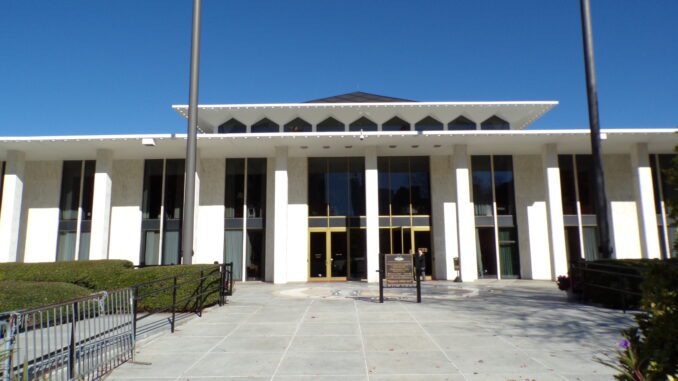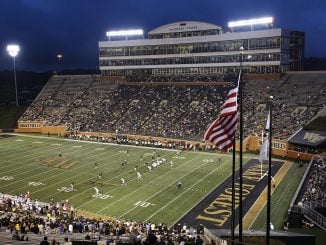
RALEIGH — Richlands High School senior Caitlynn Guarino will get to play on her school’s soccer team after lawmakers intervened in the matter.
Guarino was originally denied the opportunity to play soccer after her coach said the classes she was taking in the fall weren’t enough to satisfy the North Carolina High School Athletic Association’s participation rules.
The rules set out by the nonprofit N.C. High School Athletic Association (NCHSAA) state that in order to play sports, students have to pass a minimum of three courses on a block schedule in the prior semester.
Guarino had taken Advanced Placement (AP) classes, however, those credits were not being counted because they were being counted at the end of a school year instead of the end of a semester. That meant she wasn’t eligible to play sports under NCHSAA rules.
A petition was started backing Guarino’s complaint in an attempt to get the NCHSAA to waive the rule.
Both Onslow County Schools and the N.C. Department of Public Instruction filed appeals on Guarino’s behalf, but the NCHSAA denied them.
“This is outrageous! One of @OnslowSchools’s exceptional student-athletes was benched for the season due to @NCHSAA’s bureaucratic regulations which disincentivize academic success. I will be filing #ncga legislation to address & remedy this matter,” Sen. Michael Lazzara (R-Onslow) tweeted on Mar. 6.
Lazzara kept his promise and added an amendment to Senate Bill 52 granting the state superintendent the ability to be the final authority on high school interscholastic athletic eligibility appeals.
“Student-athletes should not be punished for taking AP classes & excelling academically. I told my constituents that I would fix this issue, and we’ve done just that by passing #NCGA legislation the very next day. We look forward to seeing this bill become law quickly,” Lazzara tweeted on the same day the amendment was added.
Less than a week later, on March 13, Lazzara announced in a series of tweets that the NCSHAA was reversing its decision.
“I just got off the phone with @NCHSAA leadership, as they have decided to REVERSE their previous decision and allow @OnslowSchools’ scholar-athlete Caitlynn Guarino to play soccer this season.
“We are grateful for this decision and look forward to continued collaboration with NCHSAA to modernize the eligibility process and ensure fairness in athletic eligibility,” tweeted Lazzara.
The amendment granting appeals authority to the state superintendent was removed the same day.
This is not the first time the NCHSAA has come under scrutiny by lawmakers.
In 2021, Gov. Roy Cooper signed a measure that changed the governing structure for high school sports. The law allows the State Board of Education to create a formal agreement lasting four years with the NCHSAA that provides a memorandum of understanding with the group to administer and enforce the education board’s student participation requirements for high school sports.
The law came about after Republican state lawmakers examined and became critical of the NCHSAA’s extensive powers and the nonprofit’s nearly $42 million in reported 2020 assets.
NCHSAA Commissioner Que Tucker said the legislative committee discussions about replacing the organization represented “a full-scale attack” on the ability and desire of the group’s more than 400 member schools “to govern their own affairs as it relates to high school athletics.”
In 2019, Republican Congressman Richard Hudson, who represented the state’s 8th District at the time, sent a letter to the NCHSAA blasting the organization for violating the First Amendment rights of North Stanly High School cheerleaders.
The NCHSAA had placed the cheerleaders on probation for posing in front of a “Trump 2020: Make America Great Again” banner before a football game.
“As the representative for Stanly County, I am appalled these students are being punished for exercising their First Amendment Right to Free Speech,” Hudson wrote, later asking for clarification on what NCSHAA policies the cheerleaders had violated.
Tucker responded in a lengthy statement which, in part, said, “While the NCHSAA does not have a specific policy prohibiting the display of political advertisements at athletic events, the behavior was contrary to the NCHSAA’s ‘Philosophy of Cheerleading’ in the NCHSAA Handbook.”
Tucker also said Stanly County Schools has a policy against political advertisements on campus or at school events and pointed to the district’s press release that stated “the cheerleaders were in uniform and were acting as representatives of the school, the display of the sign could be perceived as the school or school system endorsing a political campaign.”
“NCHSAA probation, in and of itself, is not a punishment,” Tucker said. “It serves as a notice of behavior or action that is against NCHSAA Handbook Policy or contrary to expectations of sportsmanship and proper behavior. Should infractions occur during a probation period at a member school or within a team at a member school, additional sanctions such as fines or suspensions could be implemented. In the aforementioned instance, opportunities for participation were neither eliminated nor limited.”



